 |
| Titles featured in Guardian Australia’s best books of 2021 list |
The 25 best Australian books of 2021: Helen Garner, Alice Pung, Tony Birch and more
Experimental elegies, portraits of resilience and political manifestos: 25 of the best reads of the year as picked by Guardian Australia critics and staff
Sunday 12 December 2021
Scary Monsters by Michelle de Kretser
Allen and Unwin
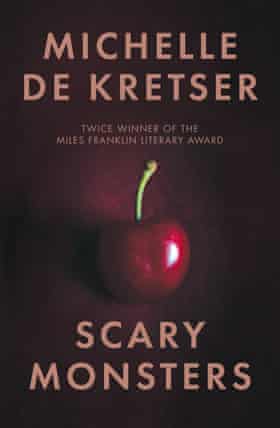
I keep thinking about the formal gambit on which Scary Monsters is built: it is a book with two faces. Quite literally: it has two covers, two sets of end pages, and it forces the reader at the outset to choose where they begin. It’s a device more complex and consequential than it first seems, because there’s only one opportunity to read one section of the novel unencumbered by the other, to read innocently. And because the sections could each, in theory, stand alone, and because the ties between them are allusive and never overt, the connections and conclusions a reader might draw are up for grabs.
It’s an inventive and playful book, funny and heartbreaking, and beautifully accomplished. – Fiona Wright
Read more: Michelle de Kretser turns the novel upside down: ‘My aim was to play with form’
The Mother Wound by Amani Haydar
Pan MacMillan

There are memoirs that tell extraordinary personal stories and hold the reader’s attention because, well, the stories are extraordinary. Then there are memoirs that take it to another level, threading greater meaning through the narrative thanks to the supreme skill, grace and intellect of the writer.
In Amani Haydar’s hands, the terrible story of the murder of her mother by her father becomes so much more than that: she transforms it into a thoughtful meditation on memory, culture, patriarchy, intergenerational trauma and, ultimately, hope and renewal. This book is stunning. – Lucy Clark
Read more: ‘I was filled with dread’: after her father killed her mother, Amani Haydar found words to heal
How to End a Story by Helen Garner
Text publishing

In her third volume of edited journals, How to End a Story: Diaries 1995-1998, Helen Garner covers the implosion of her third marriage. Almost unbearably intimate, her forensic reports on the tensions between two writers and her slowly breaking heart have operatic intensity. After the controversy of The First Stone, with no room of her own, she struggles to write and examines herself in therapy. Yet amid misery, she finds joy and silliness, and sees Sydney with an ever-curious Melburnian eye.
The diaries throw light (and shade) on the career of a great Australian writer who can shape an archetypal drama from life’s daily mess and knows exactly how to end a story. – Susan Wyndham
Read more: Helen Garner: I always liked my diary better than anything else I wrote
She is Haunted by Paige Clark
Allen and Unwin
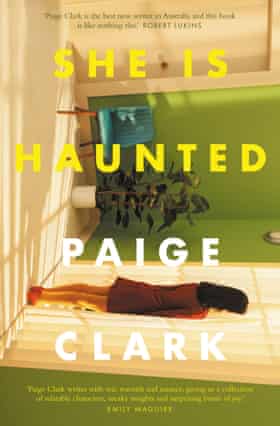
Debut books of short stories can follow something of a pattern: some pyrotechnics to show range, potentially autobiographical elements, a singular perspective or worldview that separates the author from the pack. But while all of this is true of She is Haunted, this book is a true original, with skilled, delicate power and an unforgettable mix of raw humour, fantastical digressions and melancholy insight.
Reviews of debut fiction often lean on phrases like “prodigiously talented” and “bursts on to the scene”. Again, these are true of Paige Clark but don’t do her justice. This is one of the most enjoyable, memorable Australian books of this year. – Michael Williams
Read more: Paige Clark: ‘My husband finished his album from hospital. His death taught me how to live’
Dear Son: letters and reflections from First Nations fathers and sons, edited by Thomas Mayor
Hardie Grant
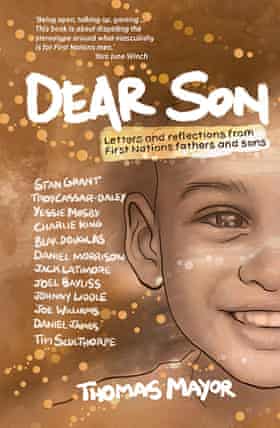
Torres Strait Islander author and activist Thomas Mayor introduces readers to his poignant collection of father-son letters by writing how colonial institutions have taught his people to “hate themselves”. Resounding postcolonial stereotypes – such as the caricature of the hopeless Indigenous parent perpetuated by an infamous Bill Leak cartoon five years ago – have further demonised and demoralised Aboriginal and Torres Strait Islander men.
Mayor’s book offers a positive counter-response in which First Nations men, writing mostly to their children (but sometimes to their fathers), lay bare the generational legacies of the “colonial stain” of self-criticism through reflections of what it means to nurture and love one another across the generations. These are heartfelt and deeply moving essays that all men can learn from. – Paul Daley
The Game by Sean Kelly
Black Inc
Sean Kelly’s first book initially doesn’t sound that promising: a biography of Scott Morrison, for which the subject has not granted the author access.
But for Kelly the obstacle is the way. Without Morrison, Kelly can create a narrative that is not dependent on the self that the prime minister wants to show. Instead his book probes Morrison’s absence: that is the absence of a story, of an inner life, of the ability to empathise, and ultimately of the ability to lead.
With a variety of literary references, including Joan Didion and Janet Malcolm, Kelly has crafted an intelligent, thoughtful book that ultimately doesn’t just reveal Morrison to us but shows us the “real Australia”. – Brigid Delaney
Grimmish by Michael Winkler
Self-published
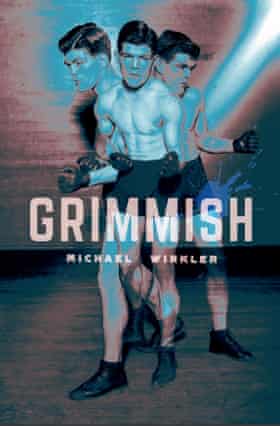
No Aussie publisher was bold enough to take a chance on Michael Winkler’s debut novel, so Winkler published it himself. Thank the literary gods he did, for Grimmish arrives with its wildness untamed and excesses untamped. This “exploded nonfiction novel” begins with the true-life tale of Joe Grim, a fin de siècle boxer famed for his capacity to endure round-after-round of punishment; a human punching bag. Around Grim’s bruised and bruising life, Winkler crafts a fable of masculinity, pain, art-making and madness.
JM Coetzee has called it “the strangest book you are likely to read this year”, and he’s spot on. Grimmish has all the makings of a cult classic. It’s grotesque and gorgeous, smart and searching. And did I mention the talking goat? – Beejay Silcox
Wild Abandon by Emily Bitto
Allen and Unwin
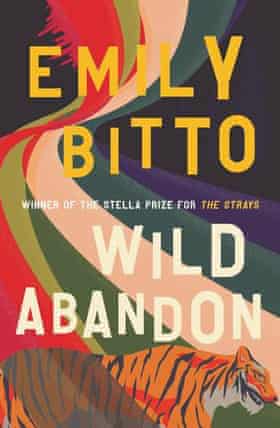
2021 has been a great year for fiction for me – particularly by Australian writers. Wild Abandon stands out as a favourite because at the peak of such an exhausting, depleting time it was an absolute delight to read something so lush and full of energy.
I’ve always loved Bitto’s writing, but her joy in experimenting with craft and character shines through on every page of this. And while there is something expansive and liberating about Will’s journey from Australia to New York to the deep heartlands of America, there is also genuine pathos, and an understanding of the endless search for connection that drives so many of us. This book is wondrous. – Bec Kavanagh
Read more: Wild Abandon by Emily Bitto review – a thrilling, irreverent take on the great American road trip
Another Day in the Colony by Chelsea Watego
UQP
Chelsea Watego is inspired by two great contemporary philosophers, Audre Lorde and bell hooks. The result is a book that only Watego could have written, a galvanic critique of colonial complacency and institutional racism in Australia. Watego herself experienced a trial by fire in academia, when a piece she wrote for an academic journal heavily criticising a white author’s book was pulled from publication and resulted in defamation threats (the piece is reprinted here). The penultimate chapter, Fuck Hope, is essential summer reading.
Another Day in the Colony is a wonderful continuation of the critical race and feminist critiques of thinkers such as Jackie Huggins, Lilla Watson, and Aileen Moreton-Robinson. – Declan Fry
One Hundred Days by Alice Pung
Black Inc
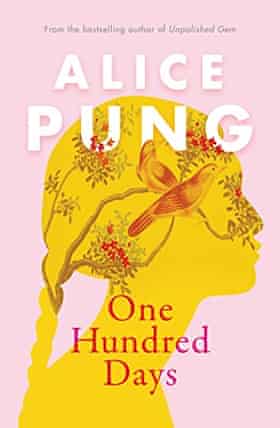
In suburban 1980s Melbourne, 16-year-old Karuna falls pregnant. Enraged, her mother confines the teenager to their commission flat, where she yearns for escape and independence. This claustrophobic, epistolary novel is beautifully nuanced in exploring the chasm between mother and daughter, especially where culture is concerned – Pung writes with empathy for both characters, even if the mother’s actions appear outwardly monstrous.
As with her other works of fiction and nonfiction, Pung’s handling of race and class is impressive, providing great insight into the complexities of both. One Hundred Days isn’t always an easy read, but it is an important and moving one. – Giselle Au-Nhien Nguyen
Read more: ‘Teenagers can deal with tough things’: Alice Pung on the complexities of race, class and motherhood
The Three Burials of Lotty Kneen by Krissy Kneen
Text publishing

Krissy Kneen was raised on a “strict diet of fairytales”, the frayed threads of her family history always woven into fables. The chief mythmaker was her Slovenian grandmother, Lotty: a mystical, matriarchal woman who spurned any probing inquiry into her obscured past. After Lotty’s death, Krissy is liberated to unearth the kernels of truth in her grandmother’s tales, to discover the lineage of her ancestors and where she might overlap with them – “skin to skin, blood to blood”.
This peripatetic memoir is an absorbing chronicle of that journey, with Krissy travelling with Lotty’s ashes from Australia to Slovenia to Egypt. It’s an intimate tale of identity – as well as of bodies, inherited trauma, and memory – and is its own heady cocktail of truth and lore. – Jack Callil
Read more: The Three Burials of Lotty Kneen by Krissy Kneen review – memoir as both fairytale and defiant truth
Echolalia by Briohny Doyle
Penguin Random House

This brooding novel from Briohny Doyle tells the story of a young mother on the brink of breakdown, struggling to manage the needs of her neuro atypical son and hounded by the memories of sexual assault and harassment she experienced as a teenager. Doyle sets this core narrative against the backdrop of a town slowly drying up – both figuratively and literally – unable to withstand economic and climate pressures. Then, a single, horrific act rocks its people to the core.
Doyle is a master at bringing together disparate and complex themes, timelines and perspectives to deliver a taut and engaging read. – Zoya Patel
Read more: Author Briohny Doyle: ‘The myth of motherhood is that it’s fantastic even when it’s hard work’
Why You Should Give a F*ck about Farming by Gabrielle Chan
Penguin Random House
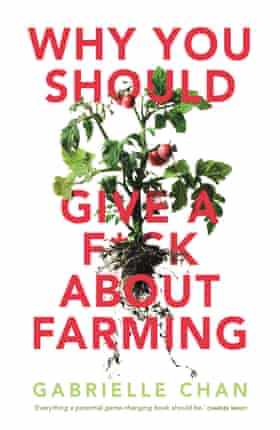
Full disclosure: Gabrielle Chan is a friend and colleague, neither of which would ordinarily compel me to read a whole book about farming – but after only a few pages you’ll see why you should, indeed, give a very big concern about farming in Australia.
If you eat and you care about the environment and food supply chains, Chan’s exposition of this enormous part of Australia’s economy and culture – not to mention actual landmass – is an urgent wakeup call. Her knowledge of policy in this area is without peer; her prodigious storytelling abilities and analysis make this subject timely, relevant and readable. – Lucy Clark
Hear more: Gabrielle Chan on why you should definitely care about farming – podcast
Bodies of Light by Jennifer Down
Text publishing
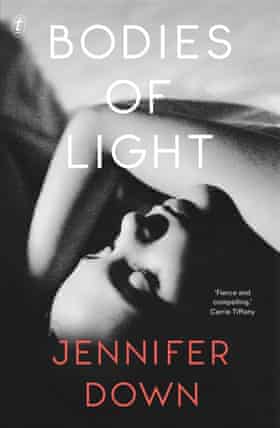
Given the various traumas and societal failures that have dominated our news cycle for the better part of 2021, Bodies of Light – Jennifer Down’s vast novel of grief, institutionalisation, pain and loss – might not feel like an easy recommendation for the reader seeking escapism or respite. But if you’re feeling robust enough to give over to the forensic, immersive story of one woman’s attempts to survive tragedy over many decades, the rewards are considerable.
Bearing witness to Maggie’s abuse, to her thwarted and often heartbreaking efforts to escape her past and ultimately to overcome it may leave you wrung out, but Down is a beautiful writer and this epic novel is first and foremost about strength and resilience. – Michael Williams
Read more: Bodies of Light by Jennifer Down review – remarkably empathic tale of vulnerability
Working From Home (may ở nhà) by Emma Do and Kim Lam
Self-published
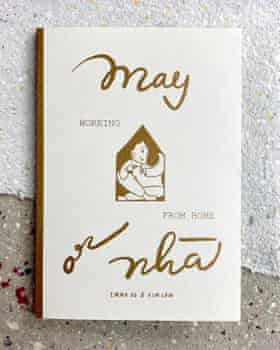
No book this year moved me half as much as Emma Do and Kim Lam’s brilliant history of outwork in Australia. Written by Do and illustrated by Lam, it tells a story of Australia during the 80s and 90s, when Vietnamese migrants and refugees struggling to find regular employment became outworkers.
The result is a stunning portrait of resilience despite adversity; of small wins and larger injustices, and of little reprieves in the face of larger marginalisation. It is an intimate look at what it means to cultivate a life, a family, a home: how care is the basis upon which our existence depends, in both the smallest and largest parts of our lives. When Do observes that “everything you wear has passed through skilled hands”, the larger analogy is impossible to miss. You’ll laugh, you’ll cry, you’ll mobilise for migrant labour rights. – Declan Fry
Read more: ‘All clothes are handmade’: the migrant workers behind Australian fashion
Leaping Into Waterfalls: The Enigmatic Gillian Mears by Bernadette Brennan
Allen & Unwin

Bernadette Brennan had the pleasurable challenge of mining a vast archive for her biography of Gillian Mears. No writer has documented her own life more obsessively than Mears, the dazzling Australian author who wrote, loved and lived passionately, until her death at 51 from multiple sclerosis in 2016.
Brennan brings scholarly discipline and an appreciative open mind to her subject’s nonconformist life: her turbulent relationships and complex sexuality, her debilitating illnesses and search for alternative treatments, her travels to a Venezuelan mountaintop and into the Australian bush. All was in service to literature, as Brennan shows in her sensitive reading of award-winning stories and novels, ending with the triumphant Foal’s Bread. – Susan Wyndham
Black and Blue by Veronica Gorrie
Scribe
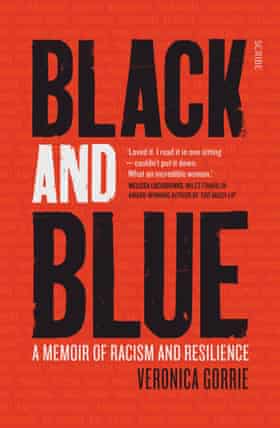
Black and Blue is the extraordinary kind of memoir that has you laughing and then, in the next paragraph, feeling like all the wind has been taken out of you with shock. Veronica Gorrie tells her story of growing up as a Gunai/Kurnai woman in Australia, and then going on to be a police officer in Brisbane where she witnessed and was the target of personal and structural racism.
Her voice is so clear and sharp it feels at times like she is talking directly to you and she has a unique gift of threading a story with small details and sideways routes that add to the odd charm of the book. It is a story of great resilience but also of great love, in her family and also in her community. – Bridie Jabour
Read more: ‘I had not one friend in the job to debrief with’: life as an Indigenous police officer
In Moonland by Miles Allinson
Scribe
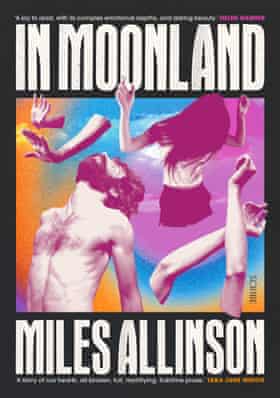
It says something about the past year that the books I found myself most lost in were set among the hippy idealism of the 70s: Allison Gibbs’ Repentance, Jonathan Franzen’s Crossroads (don’t @ me) and Miles Allinson’s In Moonland among them. In Moonland – Allison’s second novel – is a generational saga that begins in modern-day Melbourne, when new father Joe becomes fixated on learning about his dead father Vincent. But the most escapist bits are set in the past: vivid, dreamlike scenes spent with Vincent, who gets lured into the ashram/cult of the magnetic mystic Bhagwan Shree Rajneesh (AKA Osho) in India in 1976.
It’s by no means a hopeful read, but it’s beautifully written and took me to another world, another time. Which: yes please. – Steph Harmon
Love Objects by Emily Maguire
Allen and Unwin
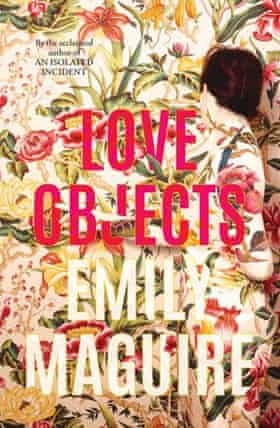
The two protagonists of Love Objects are both such kind-hearted but complicated characters, witty and brittle and bruised by the world, that they have stayed with me all year. Nic is cheeky, a bit offbeat, and so full of compassion that it almost hurts. Her niece Lena is feisty but riven with doubt, and entirely unprepared for who and what she encounters in the adult world.
Love Objects is about their relationship, and about family and care – but it’s also about class and how it carries across generations, as well as the choices and outcomes it makes available or closes off, despite our cultural insistence to the contrary. – Fiona Wright
Read more: Love Objects by Emily Maguire review – a compassionate, harrowing portrait of a hoarder
Fury by Kathryn Heyman
Allen & Unwin

The brilliant intensity of this memoir grabs you by the scruff in its opening pages and doesn’t let go. Novelist Kathryn Heyman takes the reader back to her early 20s when, fleeing a traumatic sexual assault and subsequent court case, finds work as the only female deckhand on a fishing trawler in the wild and stormy Timor Sea. It’s cinematically dramatic, yes, but also measured, as Heyman intersperses her compelling narrative of personal transformation with broader reflections on her childhood, on male violence, class, and the redemptive power of language to describe the world and her place in it.
Along the way she places stepping stones many women will recognise – from everyday insults to serious assaults – all of them rising to a sense of cold, implacable fury that builds throughout. In a lesser writer’s hands it could have been overplayed, but Heyman is meticulous with pacing and structure. – Lucy Clark
Read more: Kathryn Heyman on writing her ‘white hot’ memoir – and finding refuge on the Timor Sea
Dark As Last Night by Tony Birch
UQP
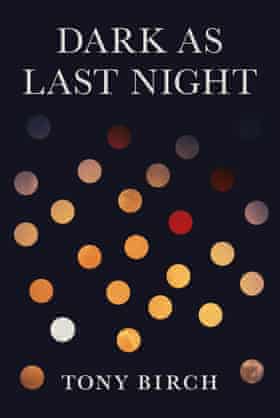
Predominantly set in Melbourne – for Tony Birch a place of struggle, grief and violence, but also community, quiet generosity, and kindness – Dark as Last Night gives the reader 16 carefully crafted short stories. Like much of Birch’s oeuvre, central to this collection is the experience of children and the ties that bind siblings. The way love and care is shown contrasts with the difficulties of resolving past hurt and present grief. But at the same time, moments of levity and youthful fun balance out the darkness in Birch’s world.
This is a serious and memorable set of stories from a master of the form. – Joseph Cummins
Read more: Dark as Last Night by Tony Birch review – 16 new vignettes from a master of the short story
As Beautiful as Any Other by Kaya Wilson
Pan Macmillan

It was a life-threatening surfing accident that prompted tsunami scientist, Dr Kaya Wilson, to come out as transgender – but bodies don’t tell linear stories and neither does his remarkable memoir. Instead, Wilson considers the things that mark us – death, grief, rage – and what a joy it is to watch his compassionate mind at work. Reviewing Wilson’s book for Guardian Australia, Bec Kavanagh observed: “he writes with an expectation that people can do better, and provides plenty of opportunities for them to do so”. It’s this generosity – this open-hearted trust – that makes As Beautiful As Any Other so potent.
“Once the question of being alive had been answered, I had to figure out how I wanted to live,” Wilson writes. His book invites us to answer that mighty question for ourselves. – Beejay Silcox
Read more: As Beautiful As Any Other by Kaya Wilson review – urgent and powerful trans memoir
No Document by Anwen Crawford
Giramondo publishing

An experimental elegy for Anwen Crawford’s late friend, collaborator and fellow activist Ned Sevil, No Document weaves together personal loss with political and artistic commentary. Through these lenses, this polyphonic book-length essay makes a compelling argument for solidarity, resistance and rebellion. Crawford’s background as a zinemaker is evident through her inventive approach here – some pages have only a single line, and some simply an empty box. Part of the experience and pleasure of reading No Document is choosing how to.
Crawford has taken risks with form, and it’s paid off – despite the book’s slim size, it’s expansive in thought and an utterly original work of creative nonfiction. – Giselle Au-Nhien Nguyen
The Newcomer by Laura Elizabeth Woollett
Scribe
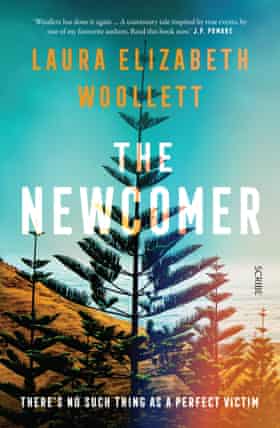
In her past books, Laura Elizabeth Woollett has dwelled on the actions of “bad men”. In The Newcomer, she turns her gaze from perpetrators to their victims. When a young woman is found murdered in the small community of Fairfolk Island, her mother is distraught. But the deceased wasn’t always easy to like, and her actions in her time on the island mean not many are inclined to delve into her death.
Woollet poses many questions in The Newcomer, including what makes a sympathetic female victim, how grief can consume us, and where the line is drawn between loyalty to a place versus justice for a person. – Zoya Patel
Read more: The Newcomer by Laura Elizabeth Woollett review – murder in a Pacific island paradise
Complaint! by Sara Ahmed
Duke University Press
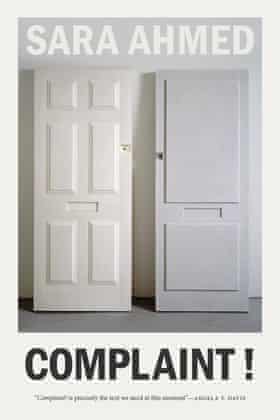
An Australian based in the UK, Ahmed is a founding figure of affect theory, as well as a highly regarded queer and critical race theorist. Complaint! is fueled by intimate experience: in 2016, Ahmed left her post at a British university over its treatment of sexual harassment. Complaint! comprises interviews with forty students, academics, and administrators variously involved with formal complaint procedures, not only around sexual harassment, but sexism, racism, and bullying. The result is a collective intervention full of humour and a sardonic intelligence, as Ahmed describes how sharing class notes is a way to recognise that “an incident, an event, a one-off, has a longer history”.
She concludes by reminding us how a single act of complaint can set off a chain reaction, leading to the creation of collectives for shared experience, shared critique and, ultimately, shared change. – Declan Fry


No comments:
Post a Comment